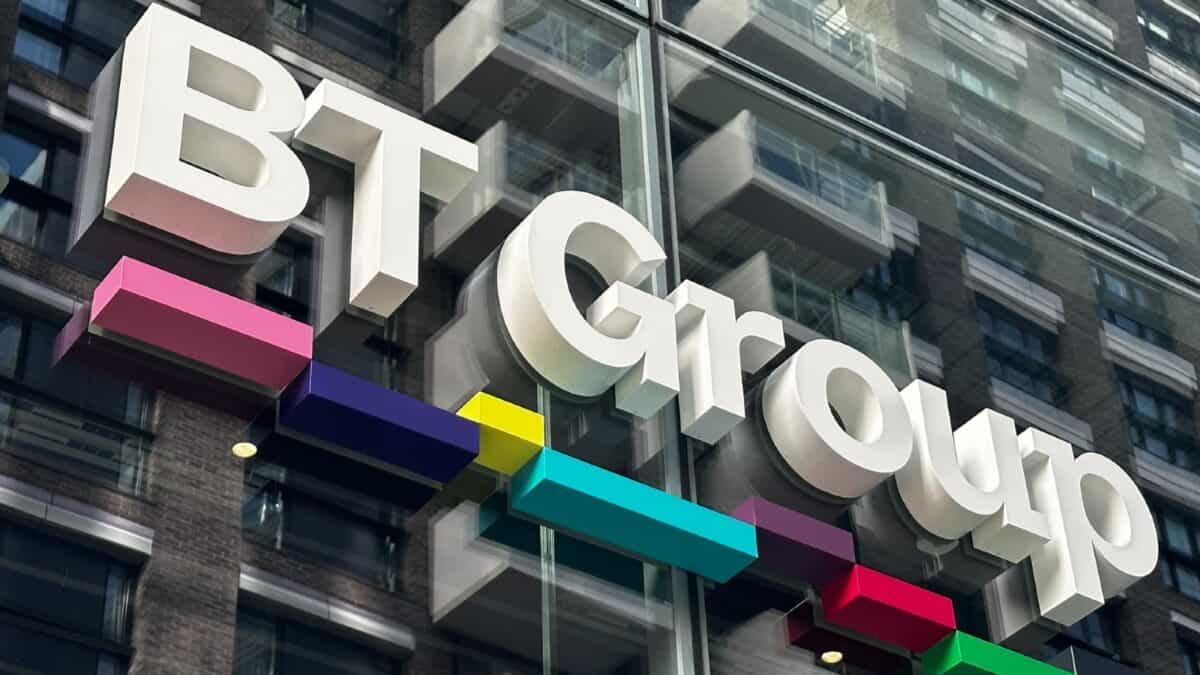BT’s (LSE: BT.A) share price has dropped 8% from its 26 September 12-month traded high of £1.52. Much of this came around the time of its H1 results released on 7 November.
Were the results that bad?
The key message for me from the H1 numbers is that BT can increase its earnings even when revenues drop.
Specifically, revenue fell 3% year on year to £10.1bn. However, earnings rose 1%, to £4.1bn. The discrepancy is mainly due to ongoing cost-cutting, which saw £433m gross annualised savings during H1.
Looking ahead, Britain’s biggest broadband and mobile company reduced its full-year revenue forecast from flat to down 1%-2%. This reflects anticipated weaker demand in the corporate and public sectors.
However, it kept earnings and free cash flow guidance unchanged at around £8.2bn and £1.5bn, respectively. Consensus analysts’ estimates are that its earnings will increase 13.54% a year to end-2027.
Are the shares undervalued?
To ascertain whether the stock is underpriced, I examine stock valuation measures I have found most useful over the years.
On the first of these – the price-to-earnings ratio (P/E)– BT shares trade at only 17.9. This is cheap compared to the 19.6 average of its competitor group.
The same can be said of its price-to-book ratio of just 1.1 against a competitor average of 1.5. And it is true as well on the price-to-sales ratio, where BT trades at only 0.7. This compares to the 1.2 average of its competitors.
To work out what this means in share price terms, I ran a discounted cash flow analysis. This used other analysts’ figures and my own and shows the stock to be 66% undervalued at its £1.40 price.
So the fair value for BT shares is theoretically £4.12. They may go higher or lower than that, given the vagaries of the market, of course. But it again underlines to me how much of a bargain they might be right now.
The bonus of a good yield
It is growth in earnings that ultimately powers not just a firm’s share price higher but its dividend too.
Last year, BT paid a total of 8p a share, giving a yield of 5.7% on the present share price. This compares to the FTSE 100’s current average yield of 3.6%.
However, the firm increased this year’s interim dividend by 3.9%, from 2.31p to 2.4p. If this were applied to the whole payout then it would increase to 8.31p this year. This would generate a yield of 5.9% right now.
Analysts forecast that next year this will rise once more – to 8.35p. This would give a yield of 6%.
Will I buy more stock?
I have thought for some time that BT shares are very undervalued and offer a good yield, which is why I bought them.
A risk in the firm is the intense competition in both its mobile and broadband businesses. This may squeeze its profit margins.
However, its strong earnings growth prospects should drive the share price much higher over time, I think. They should also push the dividend up long-term as well.
Consequently, I will be buying more BT shares very soon.








